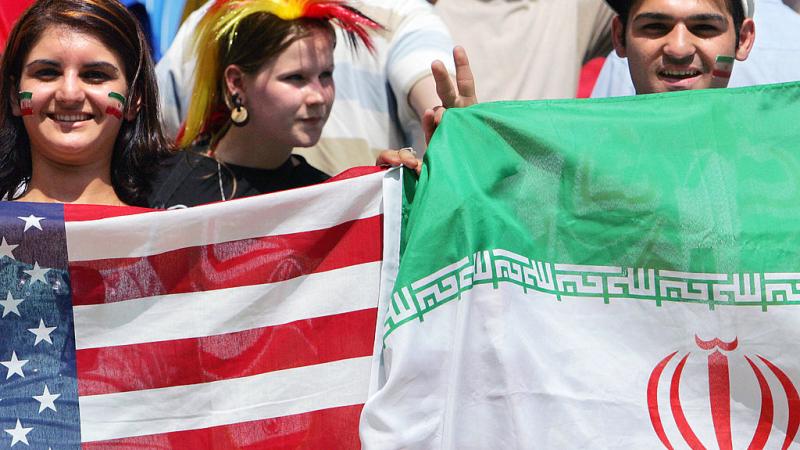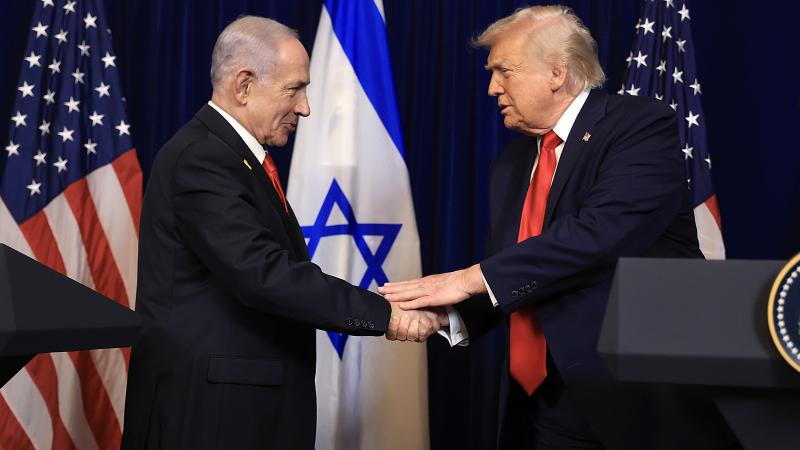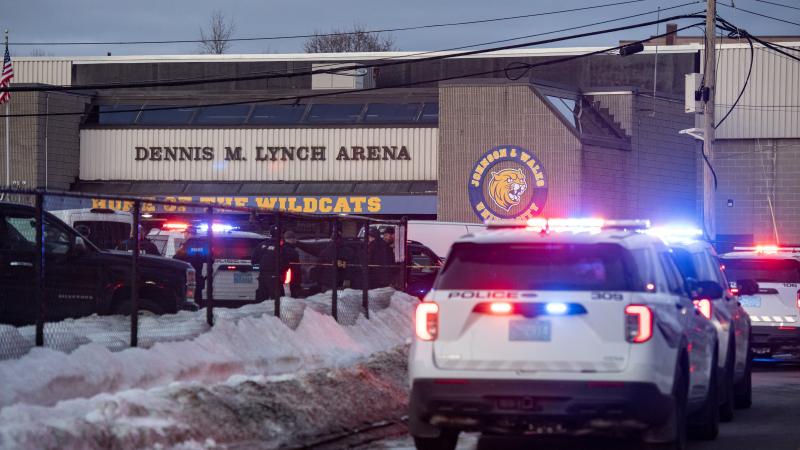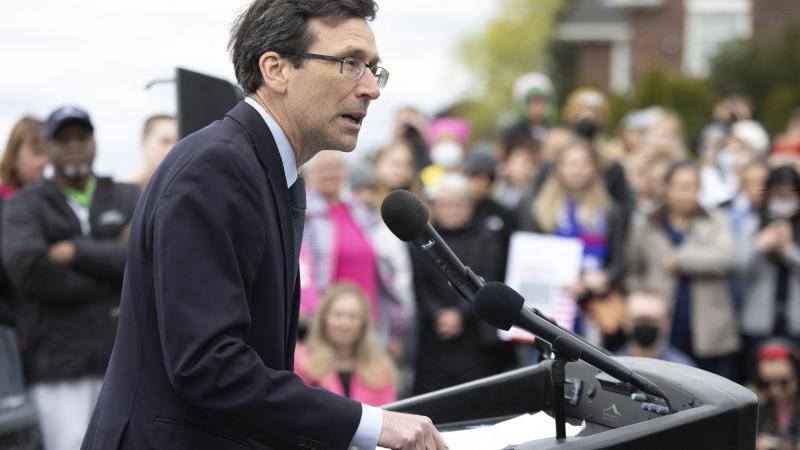Iranians attend Raisi's funeral procession while others hopeful for new future
State outlets say crying people lined up for hours while waiting for the procession, but others are hopeful his death may mark a new, more positive future.
Iranians are attending the funeral procession of President Ebrahim Raisi on Tuesday following his death in a helicopter crash, while others, such as the National Council of Resistance of Iran, are hopeful that his demise will be a blow to the Islamic Republic.
The funeral procession is traveling across the country, starting in Tabriz, the largest city near the crash site in western Iran, before going through Qom, Tehran and Birjand before finally stopping in Raisi's birthplace of Mashhad, where he is expected to be buried Thursday at the Imam Reza Shrine, according to Time.
IRNA, an Iranian-state media outlet, reported that in Qom, people "have been in the streets for hours before the arrival of the body of the martyrs with tears in their eyes and hearts full of sighs and regrets," as translated. The outlet did not state what the people may have been regretting.
Another state outlet, MEHR, said "hundreds of thousands of people" attended a funeral ceremony in Tabriz for Raisi.
Iranian officials say a technical failure caused the helicopter crash, which also killed Foreign Minister Hossein Amir-Abdollahian and other high-ranking Iranian government members.
While state-run outlets praise Raisi, who earned the nickname of the "Butcher of Tehran" after he oversaw the deaths of up to 30,000 people, including children, in 1988, others are hopeful his death will have a positive impact on the country's future.
His death "will trigger a series of repercussions and crises within theocratic tyranny, which will spur rebellious youths into action," said Maryam Rajavi, the president-elect of the National Council of Resistance of Iran. The council is a coalition of Iranian dissident groups with the primary member being the People's Mojahedin Organization of Iran, a group that worked to help overthrow the Shah during the 1979 Iranian Revolution.
"The curse of mothers and those seeking justice for the executed, along with the damnation of the Iranian people and history, mark the legacy of Ebrahim Raisi, the notorious perpetrator of the 1988 massacre of political prisoners," she also said.
Ali Safavi, a member of the council's foreign affairs committee, told Just the News that about 90% of the 30,000 people executed in 1988 in Iran were members and sympathizers of the People's Mojahedin.
A spokesperson for the People's Mojahedin expressed outrage after the United States and other Western nations offered condolences on Raisi's death.
"The Iranian nation will undoubtedly overthrow this regime, which stands against the very principles of Iran, Islam, and humanity. The pursuit of petty and fleeting economic and political gains must not lead to extolling murderers and human rights abusers," the spokesperson said, according to Safavi.
Iranian journalist and activist Masih Alinejad posted on X, formerly Twitter, a compilation of videos of Iranians drinking and eating festive meals in celebration of Raisi's death.
Mersedeh Shahinkar, a woman who lost her eye after she was shot during a protest in Iran following the death of Mahsa Amini, the 22-year-old Iranian Kurdish woman who died in police custody after she allegedly improperly wore her hijab, also celebrated.
She posted a video of herself dancing with fellow Iranian expat Sima Moradbeigi with the caption, "We freely dance and celebrate on your dirty grave."















